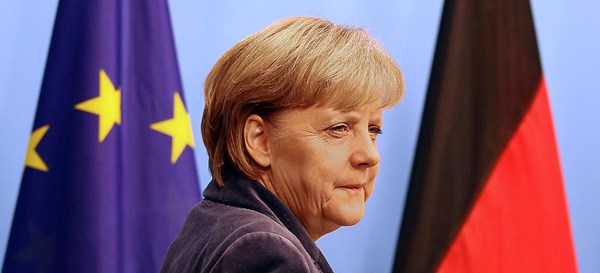Media: Russian special services hacked into Merkel’s computer accounts in 2015
In 2015, Russian hackers gained access to German Chancellor Angela Merkel's official computer and thousands of her official emails, Spiegel reported, citing investigators.
In total, the volume of the leaked information amounted to about 16 gigabytes, the newspaper writes. Two of the Chancellor's accounts, which she used for correspondence, were attacked from 2012 to 2015.
The investigation is being carried out by the Federal Criminal Police Office of Germany and the Federal Office for Information Security, and experts from private companies are also involved. It is assumed that the attackers made copies of Merkel's letters, but it is no longer possible to determine the exact amount of information that they got hold of, Spiegel writes, citing the German authorities.
It is known that the accounts of Merkel's office in the parliament were hacked, and not in the office. They contained sensitive and sometimes top-secret information. Nevertheless, the correspondence copied by hackers reveals details of the German chancellor's personal and business life, as well as the political situation in the country.
The agencies investigating the attack are confident that Russian specialists are behind it. One of the suspects is Dmitry Badin, who allegedly works for The Main Directorate of the General Staff of the Armed Forces of the Russian Federation (formerly GRU).
Greman Security services believe Badin acted under the code name Scaramouche and gained access to Merkel's computers on May 8, 2015. On that day, he was among the invited guests to the Bundestag, which marked the anniversary of the end of World War II.
The investigation partially reconstructed the attack and believes that it began with the mailing of a letter, which allegedly contained information about the conflict in Ukraine. When clicking on the link, malicious software was installed on victim’s computer that allowed hackers to gain administrative access to the computer network of Parliament. In total, the hackers gained access to about 5.6 thousand computers on the network and, accordingly, the information in them.
This week, the German Prosecutor General's Office put Badin on the international wanted list. In addition to hacking into the parliament's computer network, he is also suspected of being involved in the hacking group Fancy Bear (ART 28). The group has been accused of a number of cyberattacks abroad, including hacking into the computer network of the US Democratic National Committee. At the time, the hackers allegedly gained access to data collected on Donald Trump, who was the Republican presidential nominee at the time.
Russia denies involvement in the attacks on the United States and other countries. In particular, President Vladimir Putin stated that Russian official structures had nothing to do with attacks on Democrats. The Russian President also drew attention to the fact that hackers often disguise their activities and pretend to be hackers from other countries. "It is absolutely difficult to verify, if at all possible. In any case, at the state level we are definitely not doing this," Putin stressed.
According to the Süddeutsche Zeitung newspaper, Badin is unlikely to be detained, as the probability that he will leave Russia is extremely low. If it does happen, he will be extradited to the United States first.
